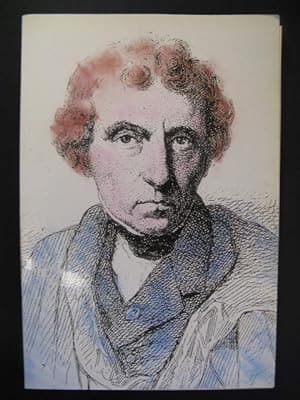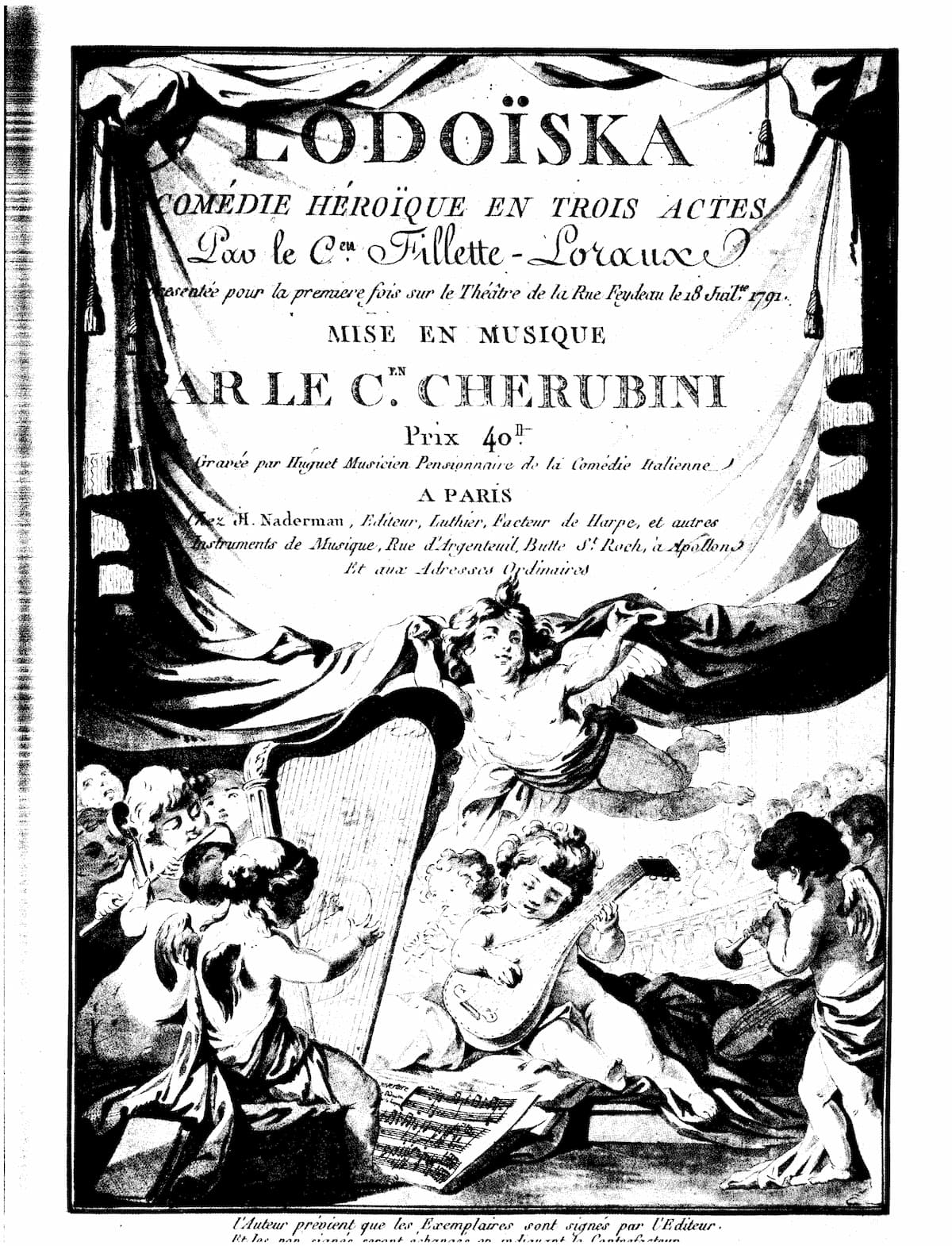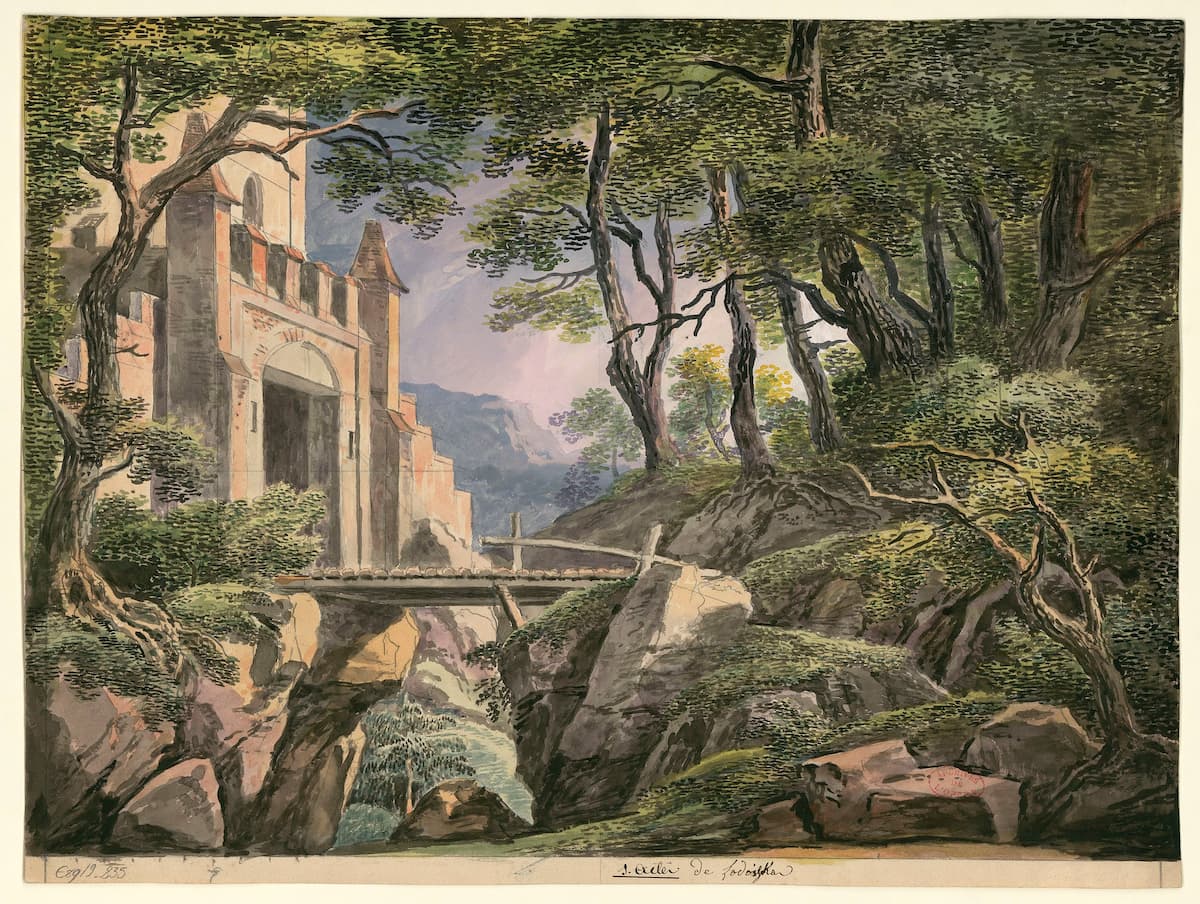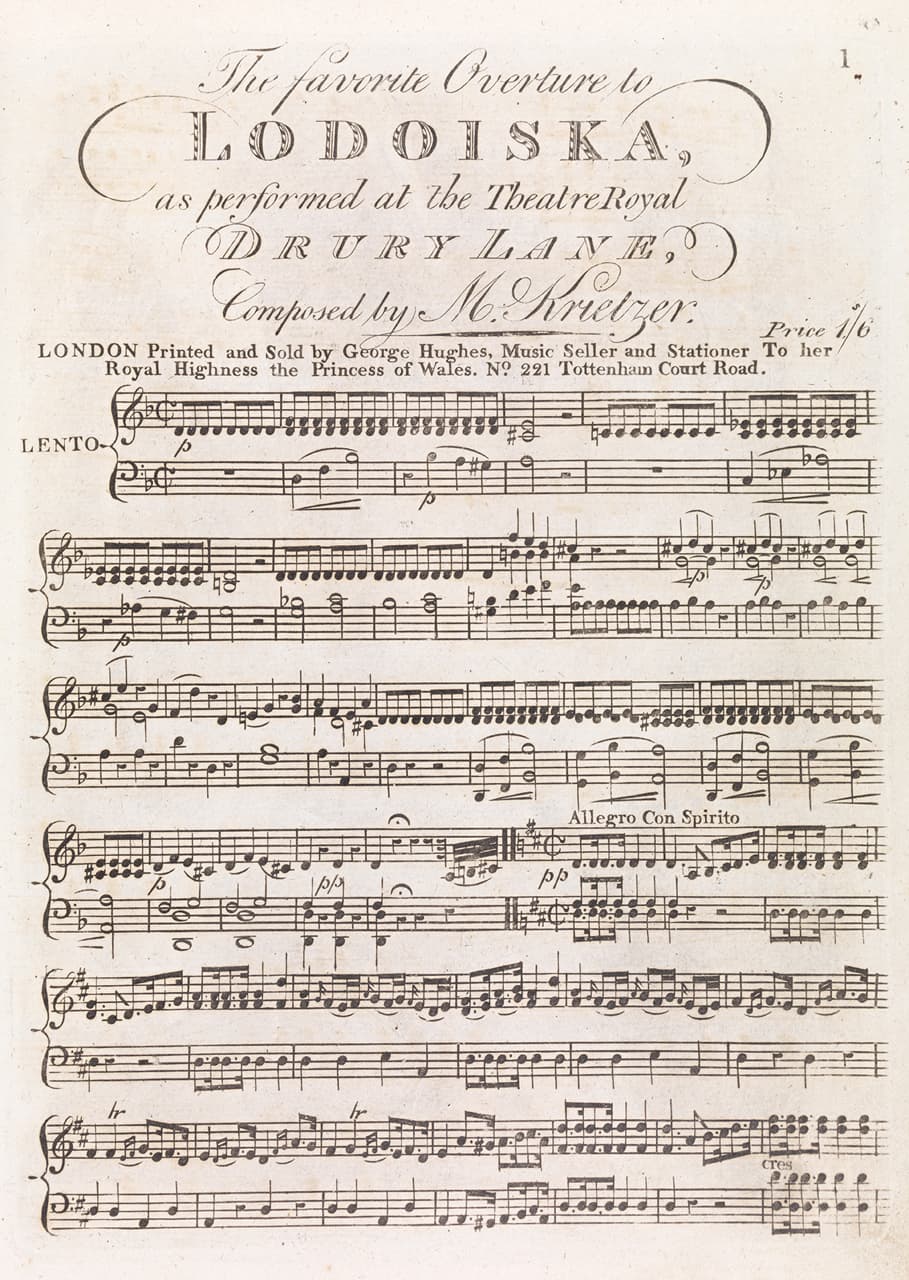Premiered on 18 July 1791 at the Théâtre Feydeau in Paris, Luigi Cherubini’s Lodoïska was immediately celebrated as a masterpiece. It ran for roughly 200 performances in Paris and was highly popular in the Germanic countries in the early 19th century as well. Beethoven, Weber, Schumann, and Wagner hailed Cherubini as one of the leading composers of the time and one of the founders of modern opera.
Luigi Cherubini: Lodoïska “Overture”
First Major Success

Luigi Cherubini
Lodoïska was the first major success of the young Italian composer Luigi Cherubini (1760-1842), who would remain a key figure in French music for nearly half a century. A man of chaotic temperament whose moods could swing from fury to deep melancholy, Cherubini gained a foothold in France with a group of Italian musicians who occupied a prominent position in the entourage of Queen Marie-Antoinette in Versailles. Like most of his colleagues, he took part in the official musical life of the capital, and he was appointed professor of counterpoint at the Conservatoire in 1795.
Based on an episode from Jean-Baptiste Louvet de Couvrai’s novel, Les amours du chevalier de Faublas, Lodoïska takes the form of a comédie héroïque, a type of opéra comique in three acts. It has been called one of the first Romantic operas and a work that established the highly popular rescue opera genre. Cherubini took a traditional opéra comique genre, with its typical alternation of speech and singing, and turned it into the source “of an aesthetic revolution that was to bring about a great change in European music in the century of Romanticism.”
Luigi Cherubini: Lodoïska – Act I Scene 1: Approchez sans defiance (Philippe Do, tenor; Pierre Virly, baritone; Cyrille Gautreau, bass-baritone; Les Éléments Chamber Choir, Le Cercle de l’Harmonie; Jérémie Rhorer, cond.)
Luigi Cherubini: Lodoïska – Act I Scene 3: Air: Voyez la belle besogne (Armando Noguera, baritone; Sebastien Gueze, tenor; Les Éléments Chamber Choir, Le Cercle de l’Harmonie; Jérémie Rhorer, cond.)
Act 1

Luigi Cherubini’s Lodoïska
The story is set in 17th-century Poland, in and around the castle of the wicked Baron Dourlinsky. The castle is under observation by a group of Tartar warriors, led by Titzikan, who are looking to take over the premises. The aristocratic but liberal Polish count Floreski appears with his faithful servant Varbel. Floreski is looking for his girlfriend Lodoïska, whom he had planned to marry. However, her father had a political disagreement with Floreski, and cancelled the wedding. He hid his daughter in a secret location, but since he has died, nobody knows exactly where she is.
Floreski and Varbel are confronted by Titzikan but, in the end, form an alliance to attack Dourlinsky. A stone lands at Floreski’s feet thrown by Lodoïska herself, as she is being held in the castle’s prison tower. Floreski approaches the tower, and she implores him to lower a note to her window. However, Varbel has a better idea. Since Dourlinsky does not know that Lodoïska’s father has died, they should go to the castle and deliver the news. They will then claim to act on instruction from Lodoïska’s mother to bring her home. All agreed, they knock on the castle door and are let inside.
Luigi Cherubini: Lodoïska – Act I Scene 7: Polonaise: Souvent pres d’une belle (Armando Noguera, baritone; Sebastien Gueze, tenor; Les Éléments Chamber Choir, Le Cercle de l’Harmonie; Jérémie Rhorer, cond.)
Luigi Cherubini: Lodoïska – Act I Scene 8: Finale: Floreski! (Nathalie Manfrino, soprano; Sebastien Gueze, tenor; Armando Noguera, baritone; Le Cercle de l’Harmonie; Jérémie Rhorer, cond.)
Act 2

Luigi Cherubini’s Lodoïska sketch for Act I
Dourlinsky approaches Lodoïska and declares that he will marry her. She tells him that he has no right to marry her and calls him a monster and not a lover. She also tells him that she is in love with Count Floreski. Lodoïska is returned to prison while Dourlinsky vows to kill Floreski. Dourlinsky then meets with Floreski and Varbel, not knowing who they are. When they tell him that they are sent to bring Lodoïsk back to her mother, he doesn’t believe it and asserts that she is no longer in the castle.
Floreski realises that Dourlinsky plans to steal Lodoïska for himself, and Varbel brings the disturbing news that Dourlinsky will offer them some refreshments, two glasses of poisoned wine. They somehow manage to switch the glasses, but when Floreski and Varbel try to escape, they are confronted by Dourlinsky. Floreski reveals his identity, and together with Varbel are taken prisoner.
Luigi Cherubini: Lodoïska – Act II Scene 2: Vous voyez comme on nous traite (Hjordis Thébault, soprano; Nathalie Manfrino, soprano; Le Cercle de l’Harmonie; Jérémie Rhorer, cond.)
Luigi Cherubini: Lodoïska – Act II Scene 2: Air: Helas! Dans ce cruel asile (Nathalie Manfrino, soprano; Le Cercle de l’Harmonie; Jérémie Rhorer, cond.)
Act 3

Luigi Cherubini’s Lodoïska
Dourlinsky presents Lodoïska with an ultimatum. If she refuses to marry him, Floreski will be killed. She tells him that she can’t marry him unless her father gives her away. When Dourlinsky tells her that her father is dead, Lodoïska passes out. Floreski is brought in, and the lovers run to each other. Dourlinsky repeats his demand, but the couple tell him that they would rather die. Dourlinsky is unsure of what to do next when cannon fire is heard. Titzikan is attacking the castle with his army.
In a spectacular scene that helped to make the opera a hit in Paris, one of the castle walls is blown up, then crumbles to reveal the battlefield outside. The tartars overcome Dourlinsky’s forces with Lodoïska locked in the tower. She is rescued by Titzikan, and he also saves Floreski by snatching a dagger from Dourlinsky’s hand. With the castle in flames, Dourlinsky admits defeat while Floreski and Lodoïska celebrate their reunion.
Luigi Cherubini: Lodoïska – Act II Scene 13: Finale: Helas! Qu’allons-nous entreprendre? (Sebastien Gueze, tenor; Armando Noguera, baritone; Pierre Virly, baritone; Antonio Guirao-Valverde, bass-baritone; Cyrille Gautreau, bass-baritone; Pierre-Yves Pruvot, baritone; Alain Buet, bass-baritone; Les Éléments Chamber Choir; Le Cercle de l’Harmonie; Jérémie Rhorer, cond.)
Legacy
The success of the opera was assured by flowing vocal lines, a novel orchestration, and its romantic plot “which seized the imagination of the inhabitants of revolutionary Paris by setting the righteousness of heroism, liberty and fraternity against the evil of tyranny.” Cherubini had turned simple strophic songs into fully developed emotive arias, with ensembles becoming the norm and orchestration that acquired symphonic proportions.
A scholar wrote, “The advanced harmonic combinations, brilliant, nay, even startling and realistic orchestral effects and tone colourings … mark a great artistic advance – a stride so vast that it is scarcely surprising that it caused alarm among the composers of the day.” Cherubini had, in fact, created one of the most important works in the history of French opera.
For more of the best in classical music, sign up for our E-Newsletter
Luigi Cherubini: Lodoïska – Act III Scene 4: Lodoiska! Reconnais ton malheureux amant (Sebastien Gueze, tenor;Nathalie Manfrino, soprano; Pierre-Yves Pruvot, baritone; Alain Buet, bass-baritone; Le Cercle de l’Harmonie; Jérémie Rhorer, cond.)
Luigi Cherubini: Lodoïska – Act III Scene 6: Mais que signifie cette allarme (Floreski) – Scene 7: Finale: Tyran, au nombre de tes crimes (Sebastien Gueze, tenor; Philippe Do, tenor; Pierre-Yves Pruvot, baritone; Nathalie Manfrino, soprano; Hjordis Thébault, soprano; Alain Buet, bass-baritone; Les Éléments Chamber Choir; Le Cercle de l’Harmonie; Jérémie Rhorer, cond.)
